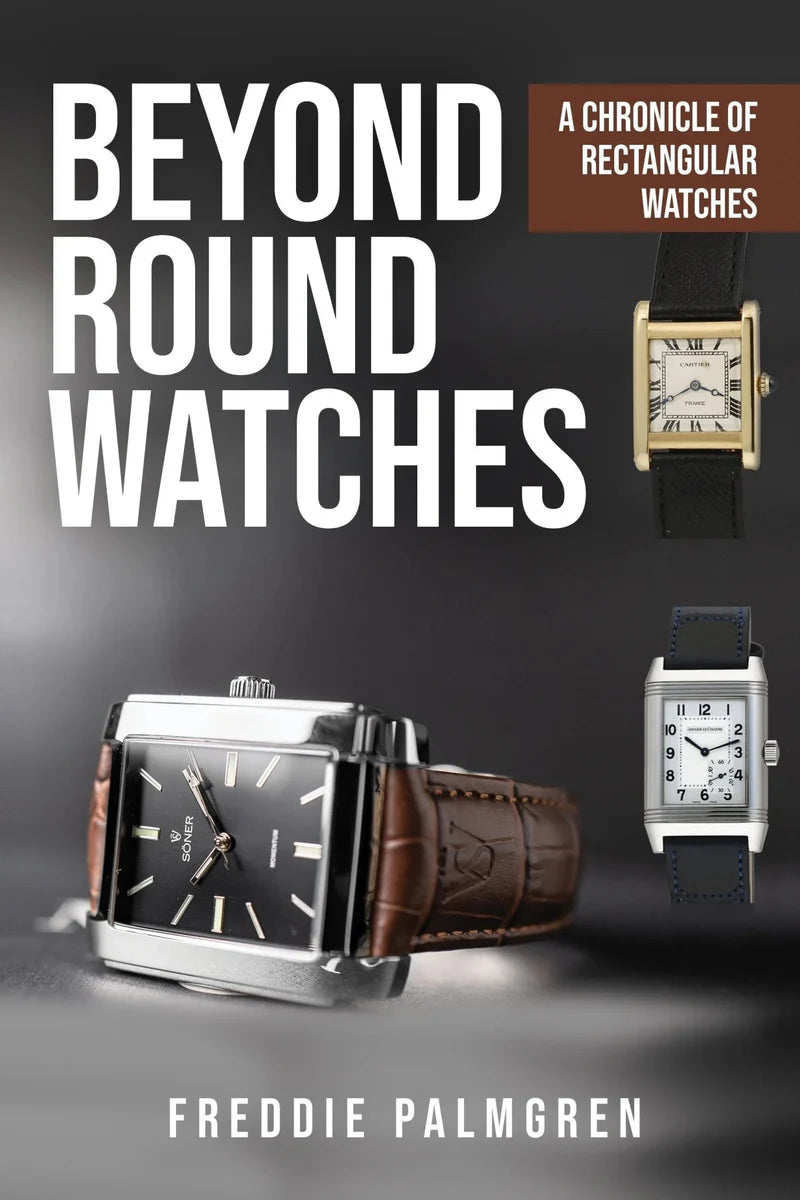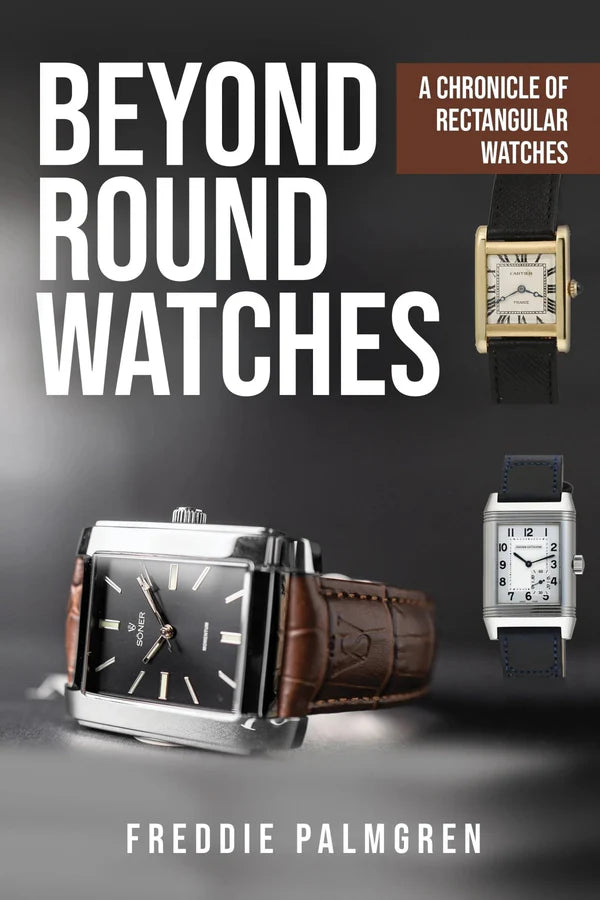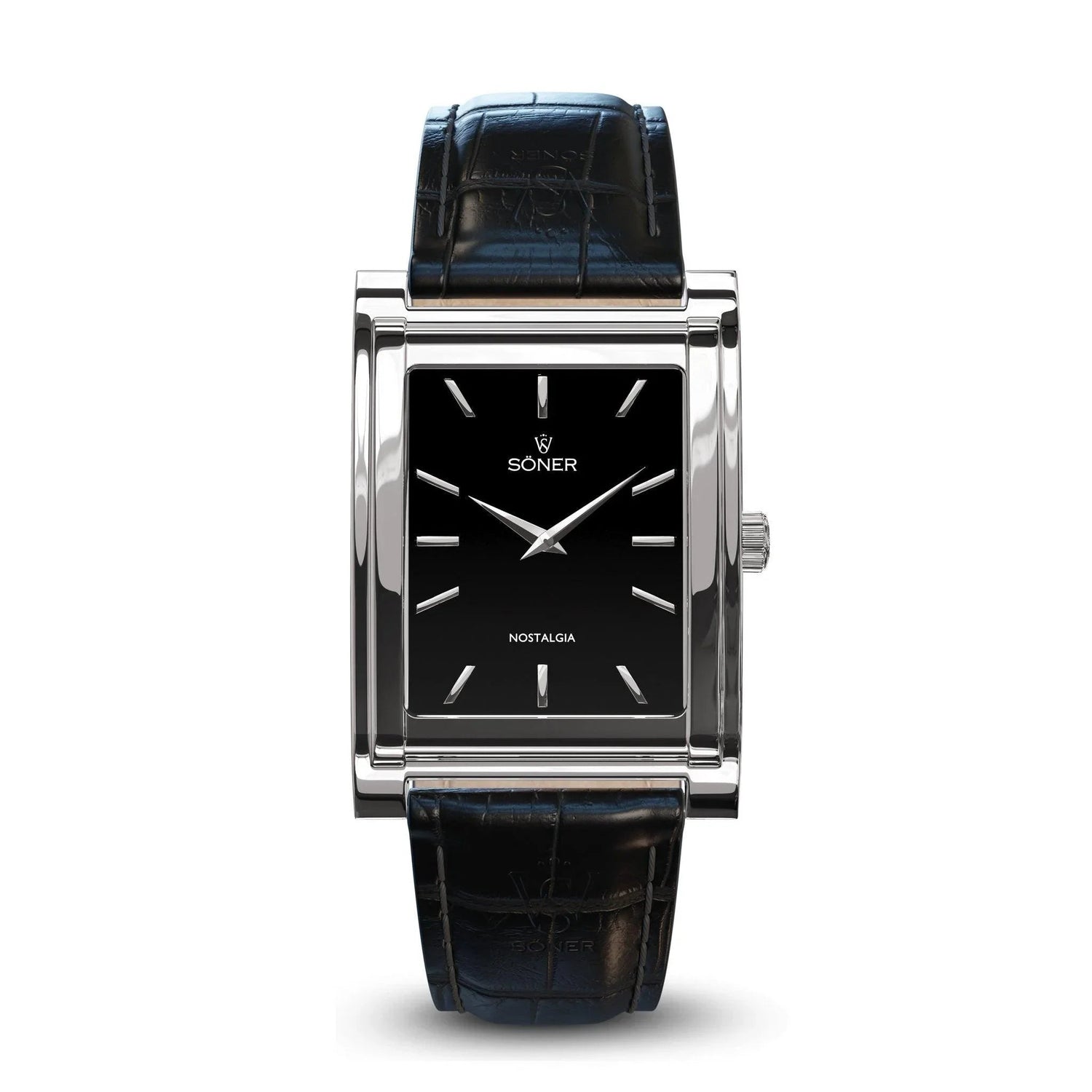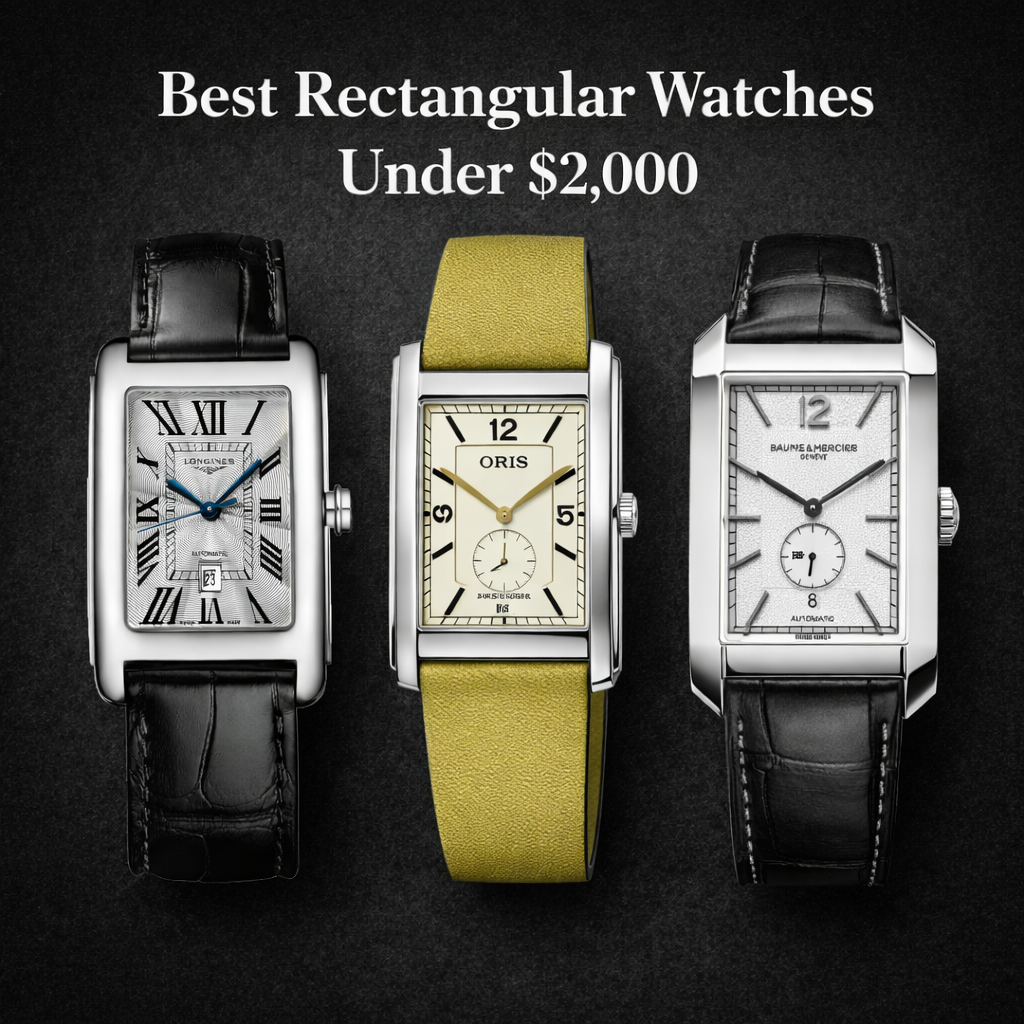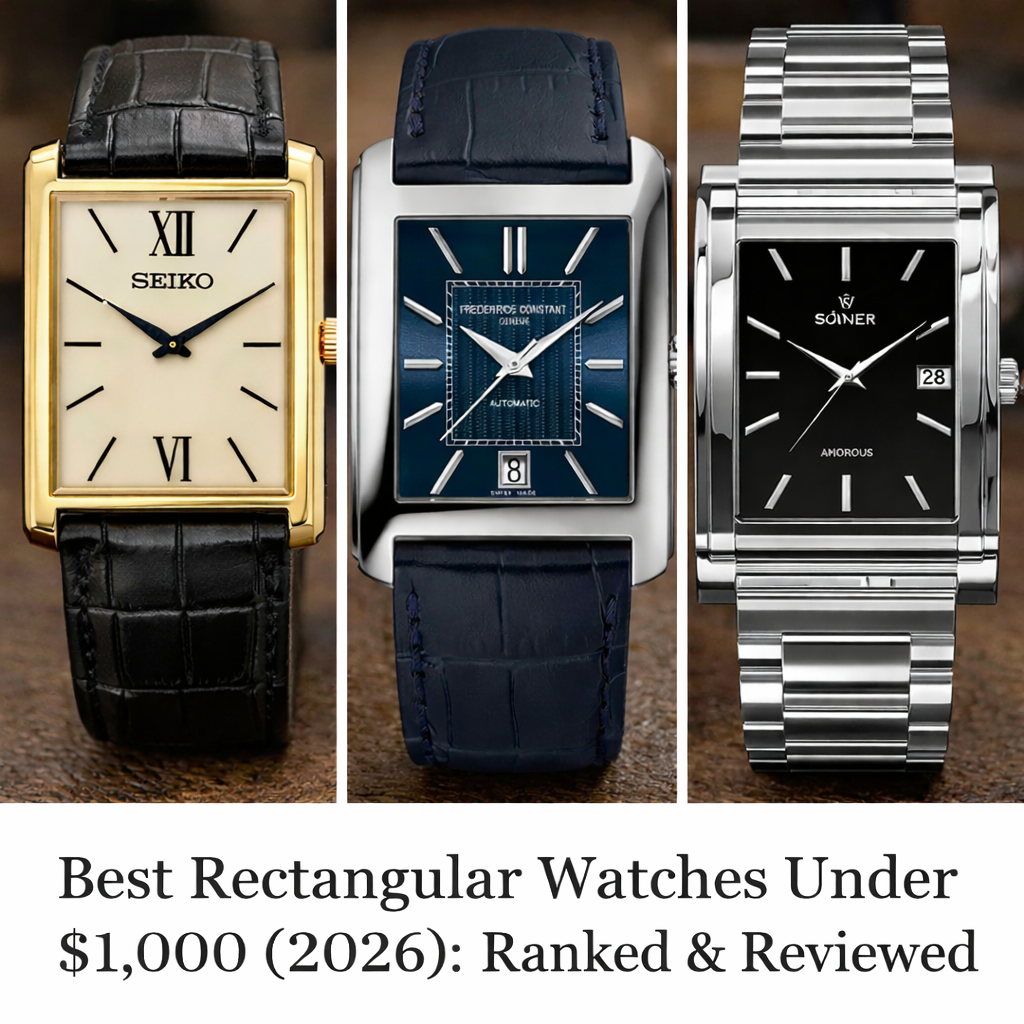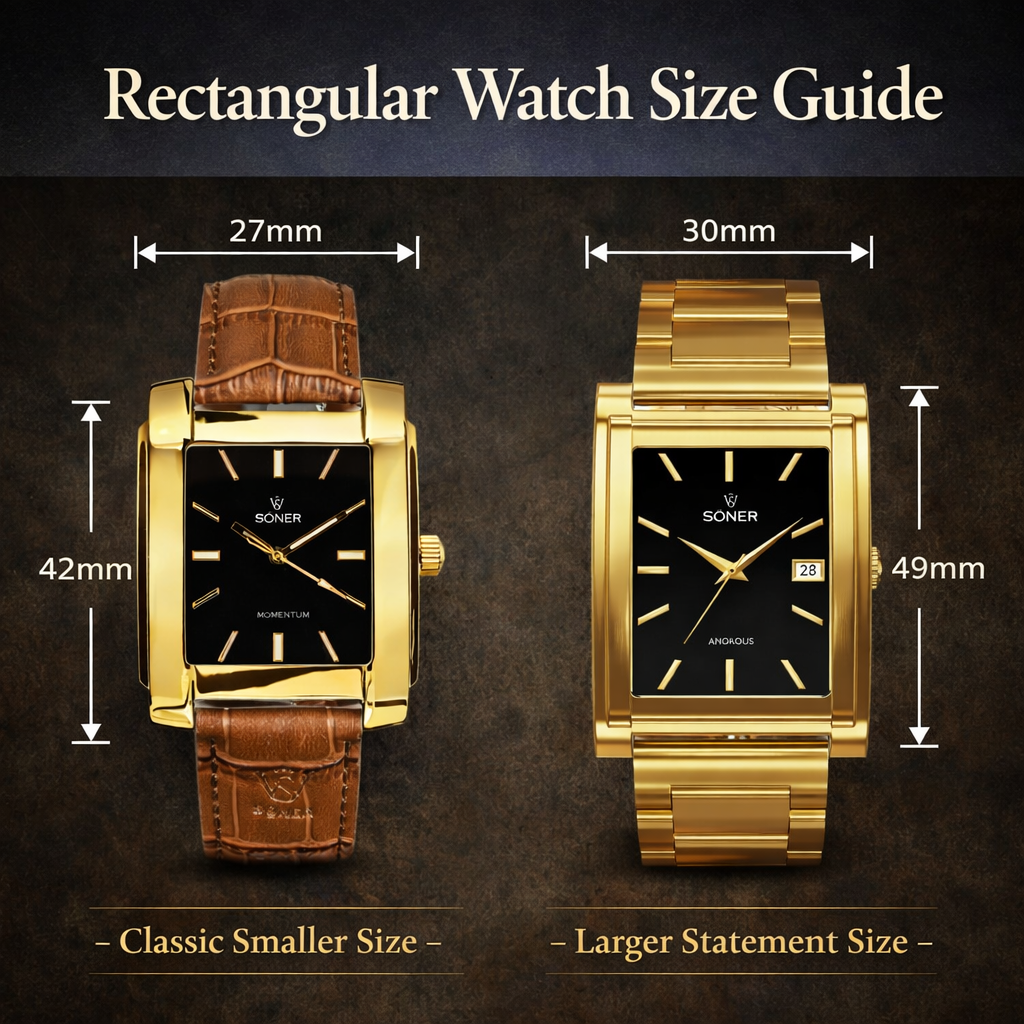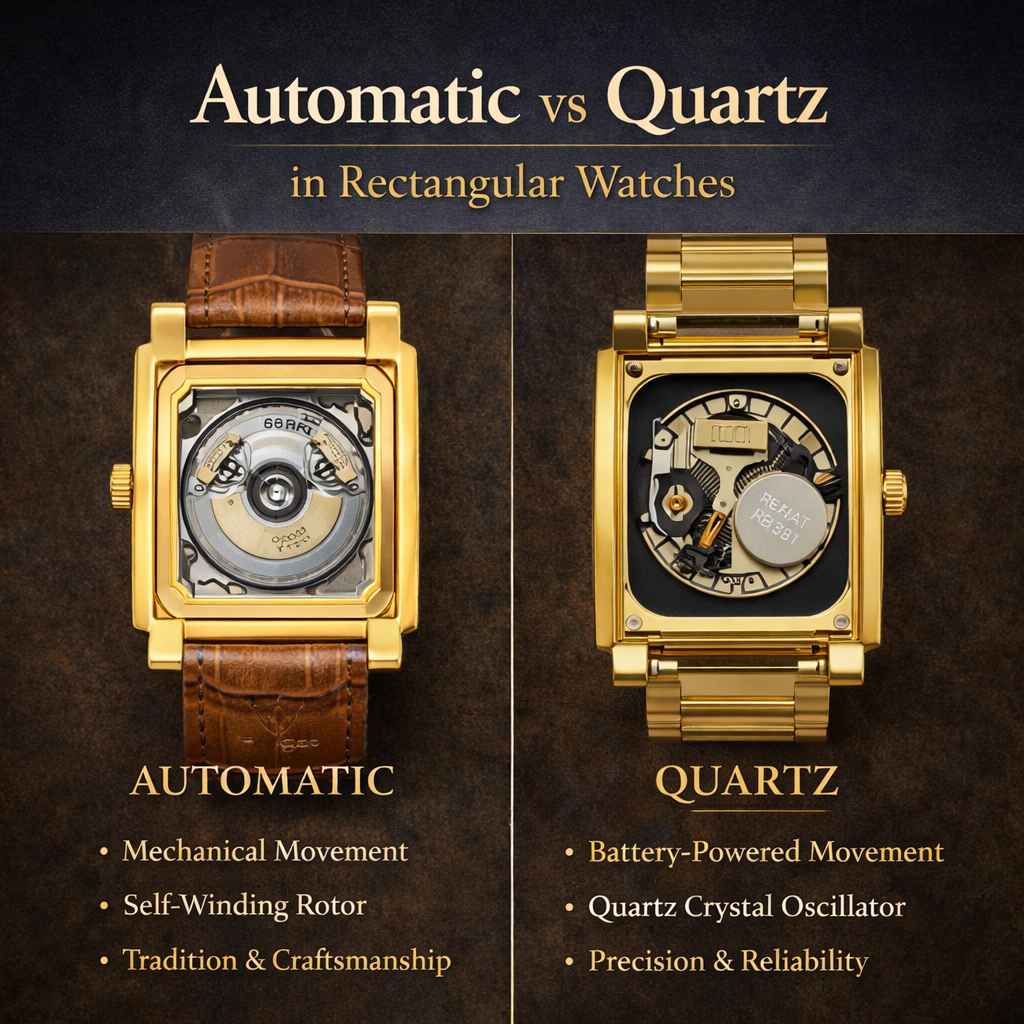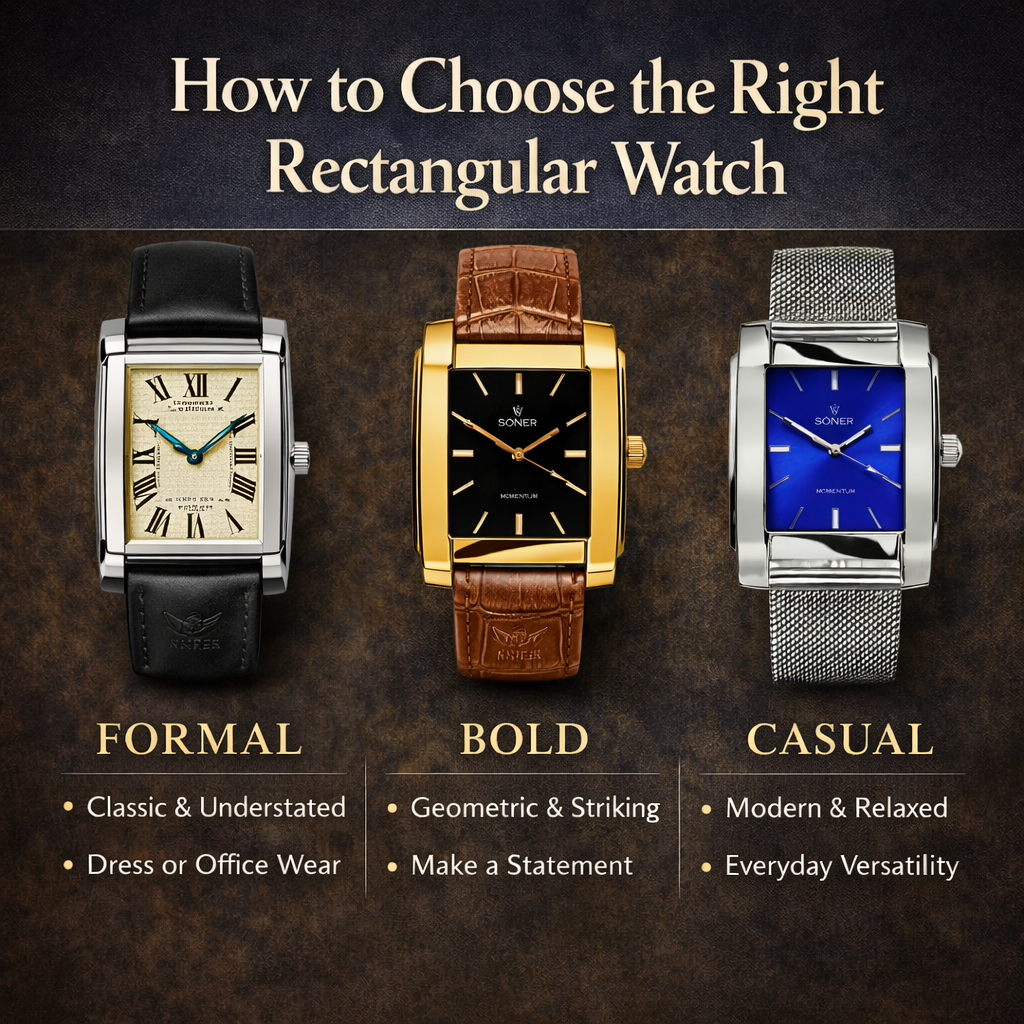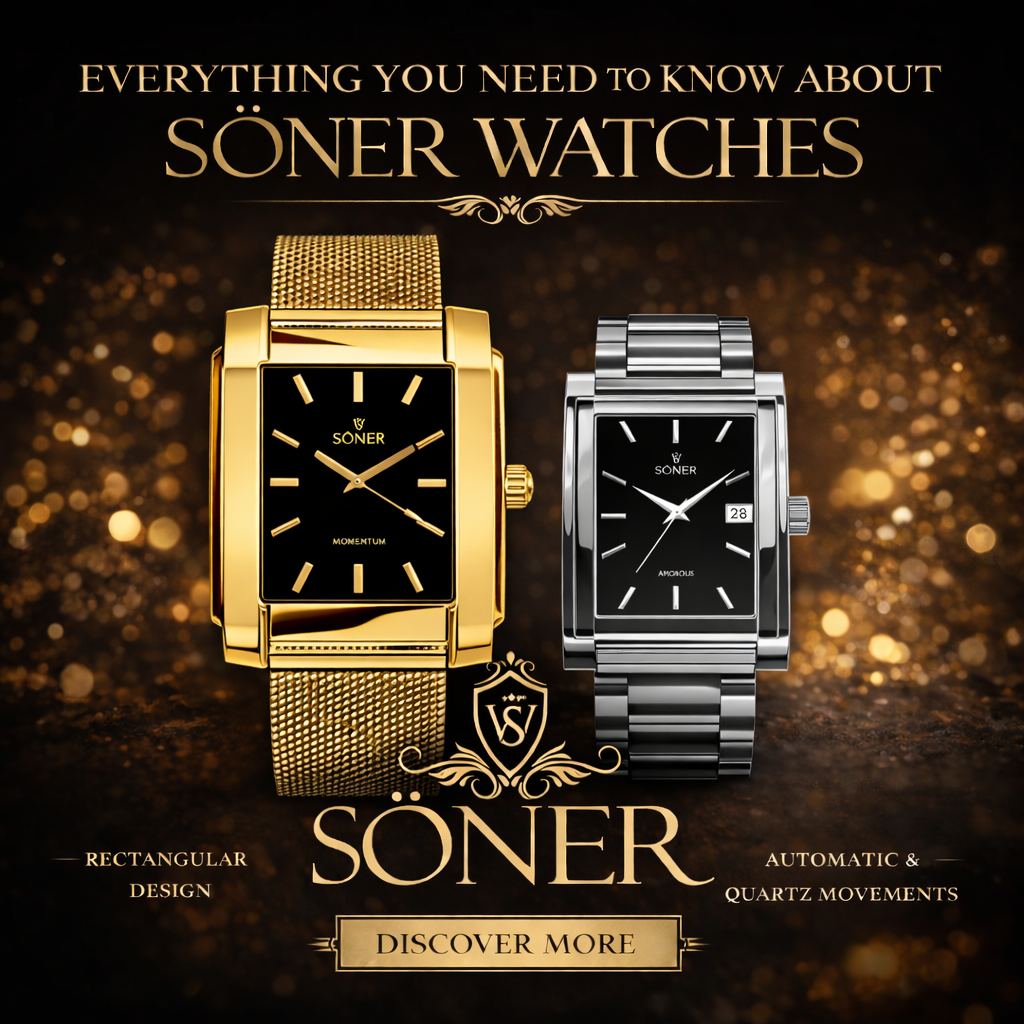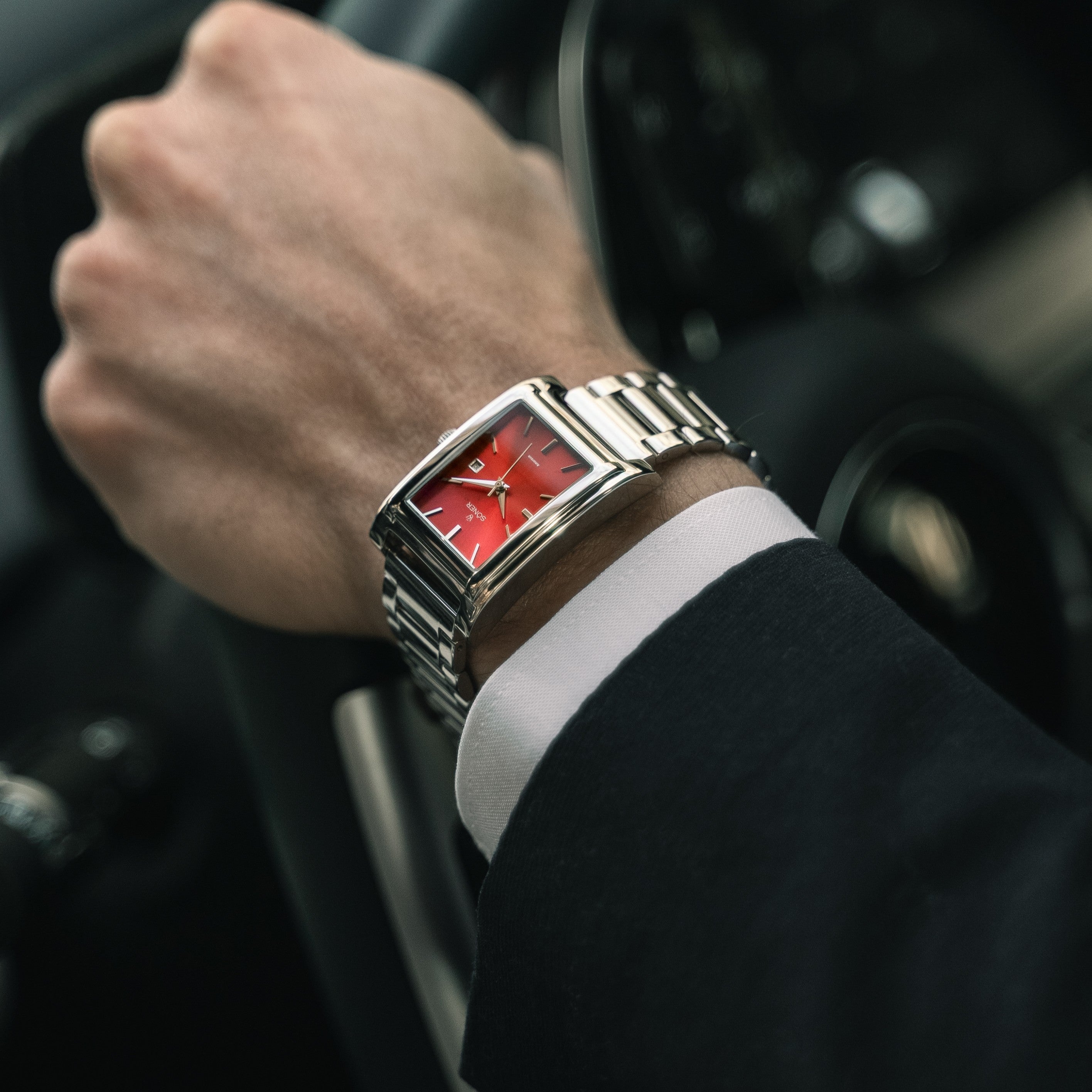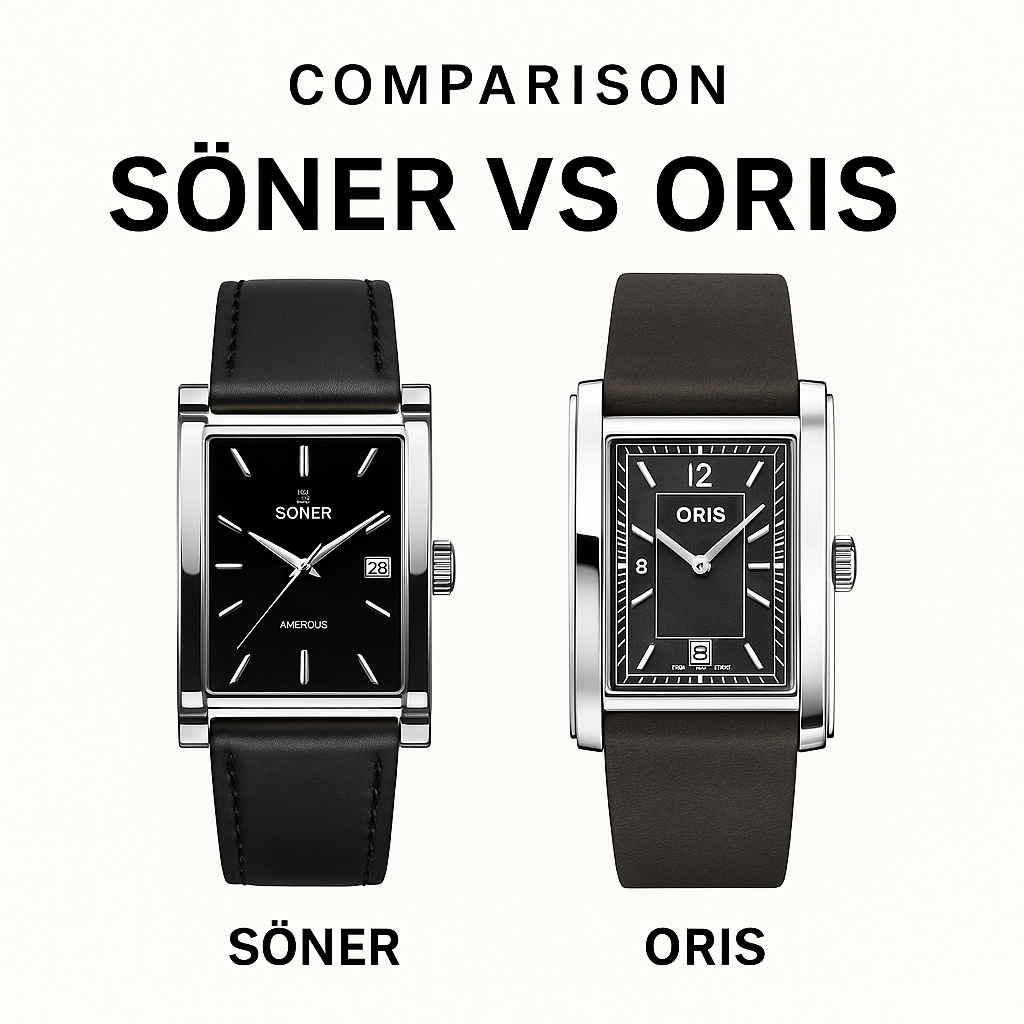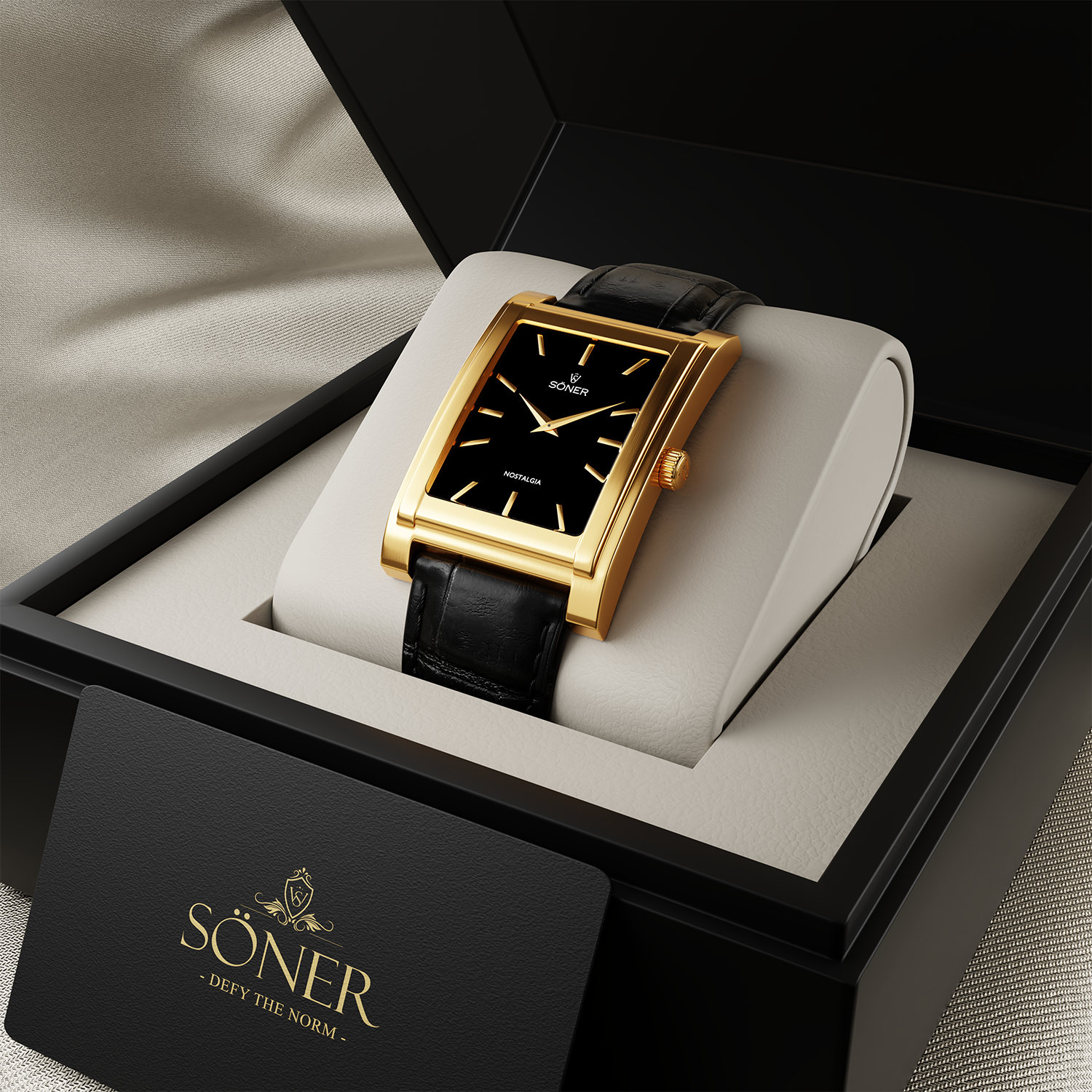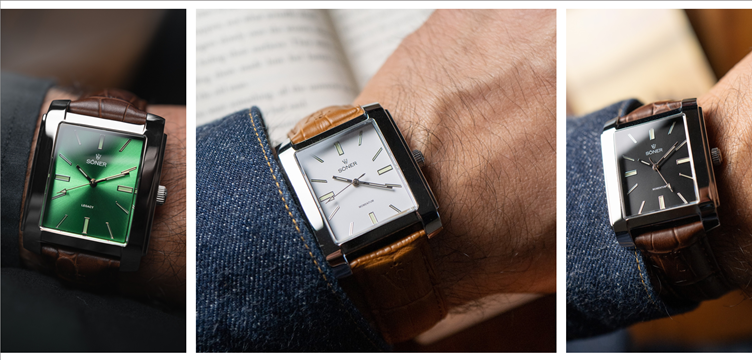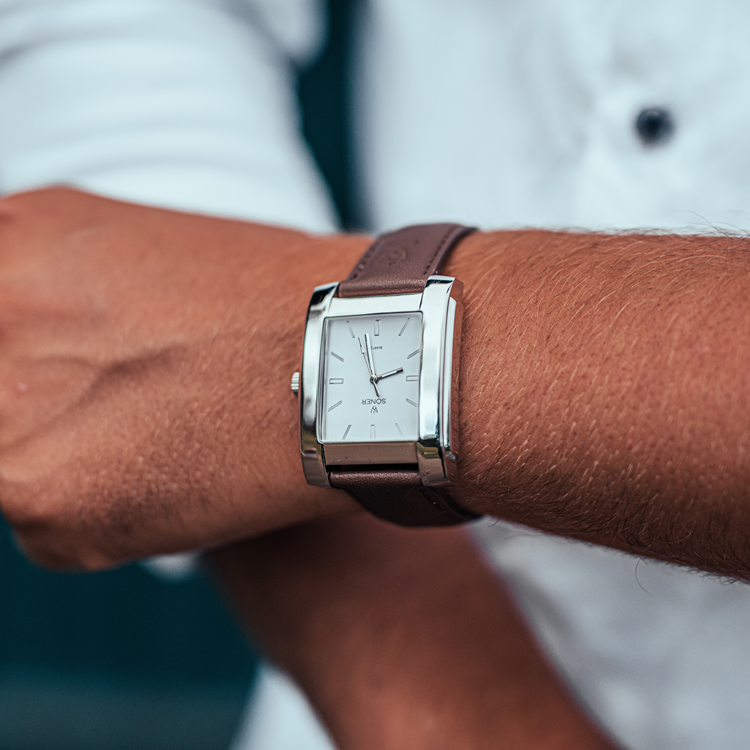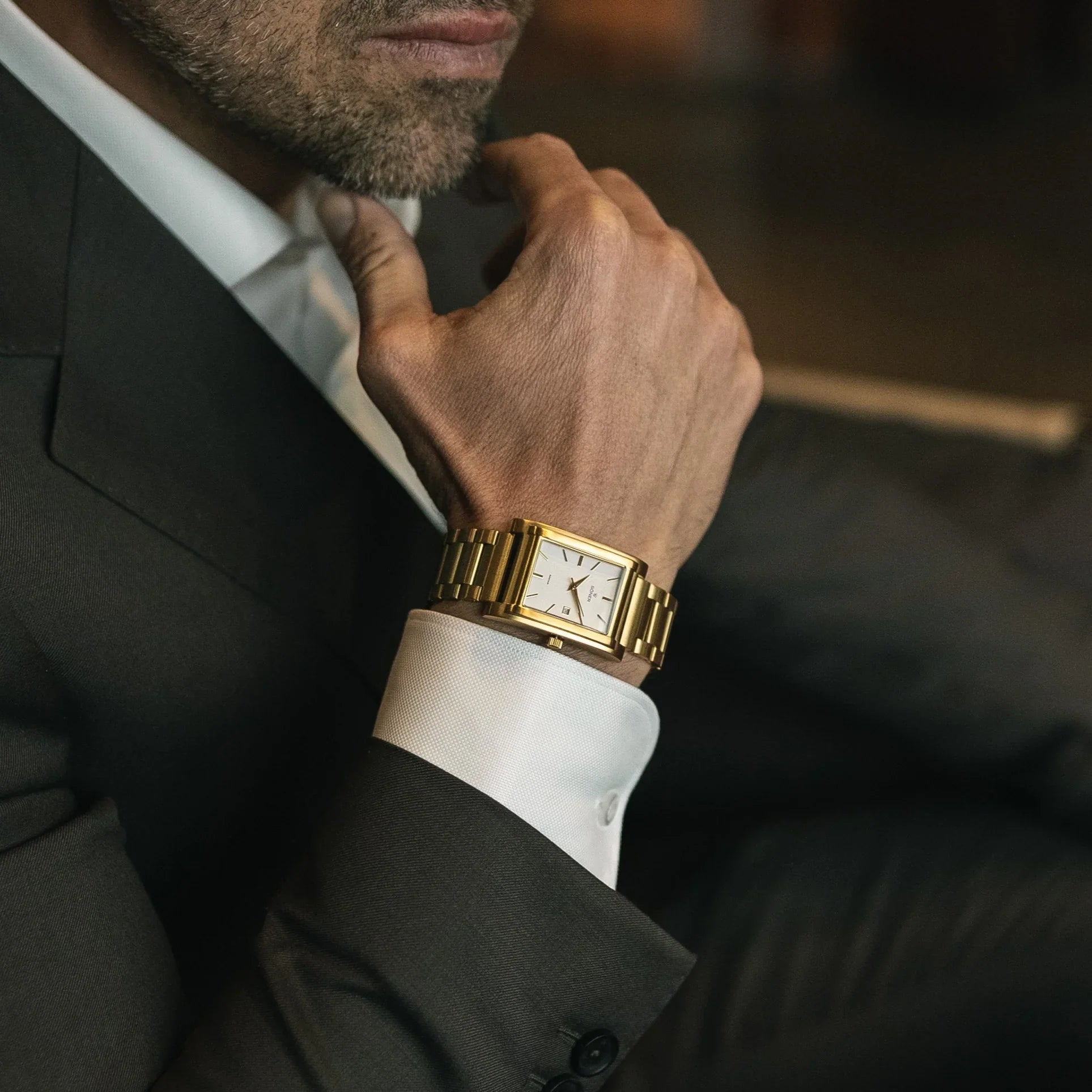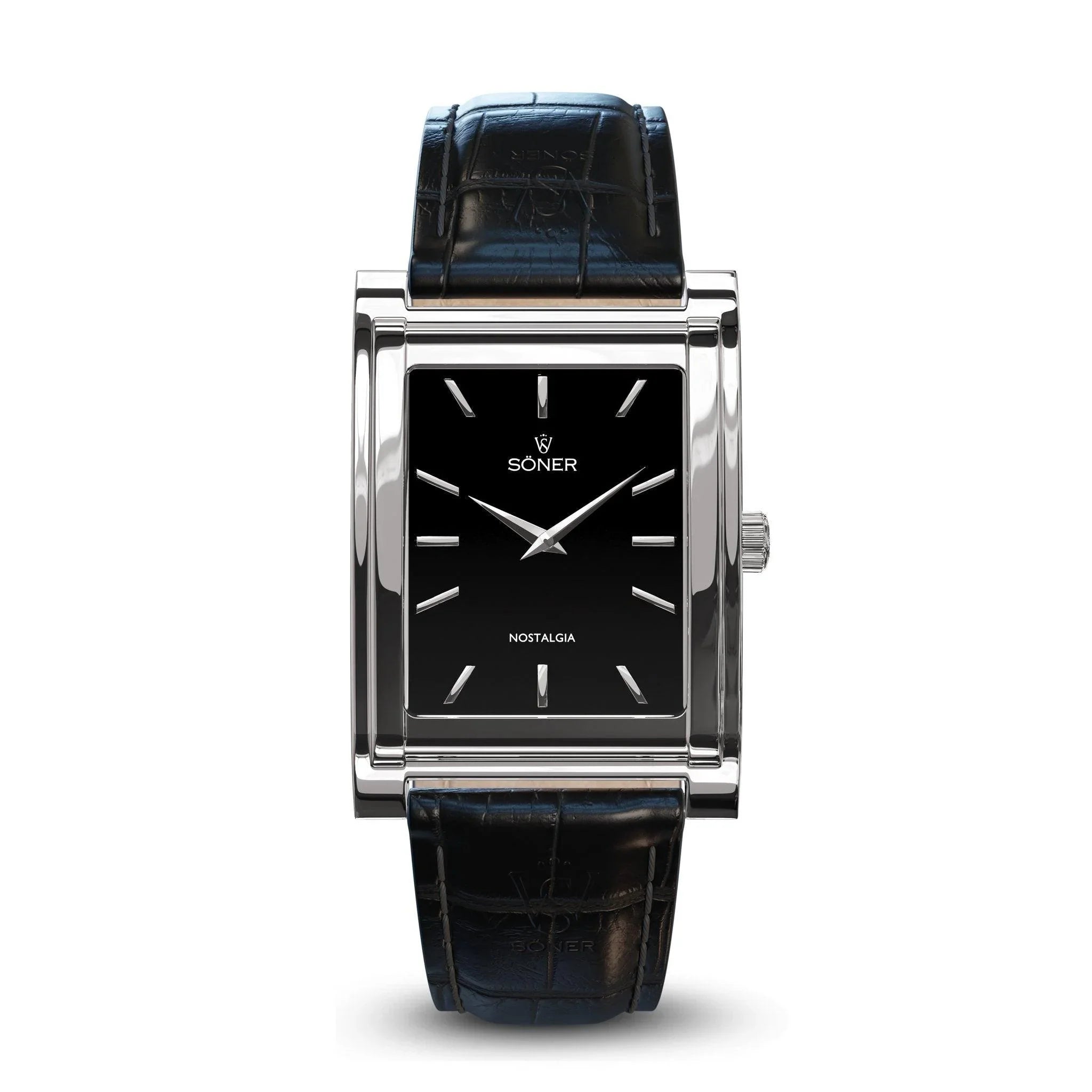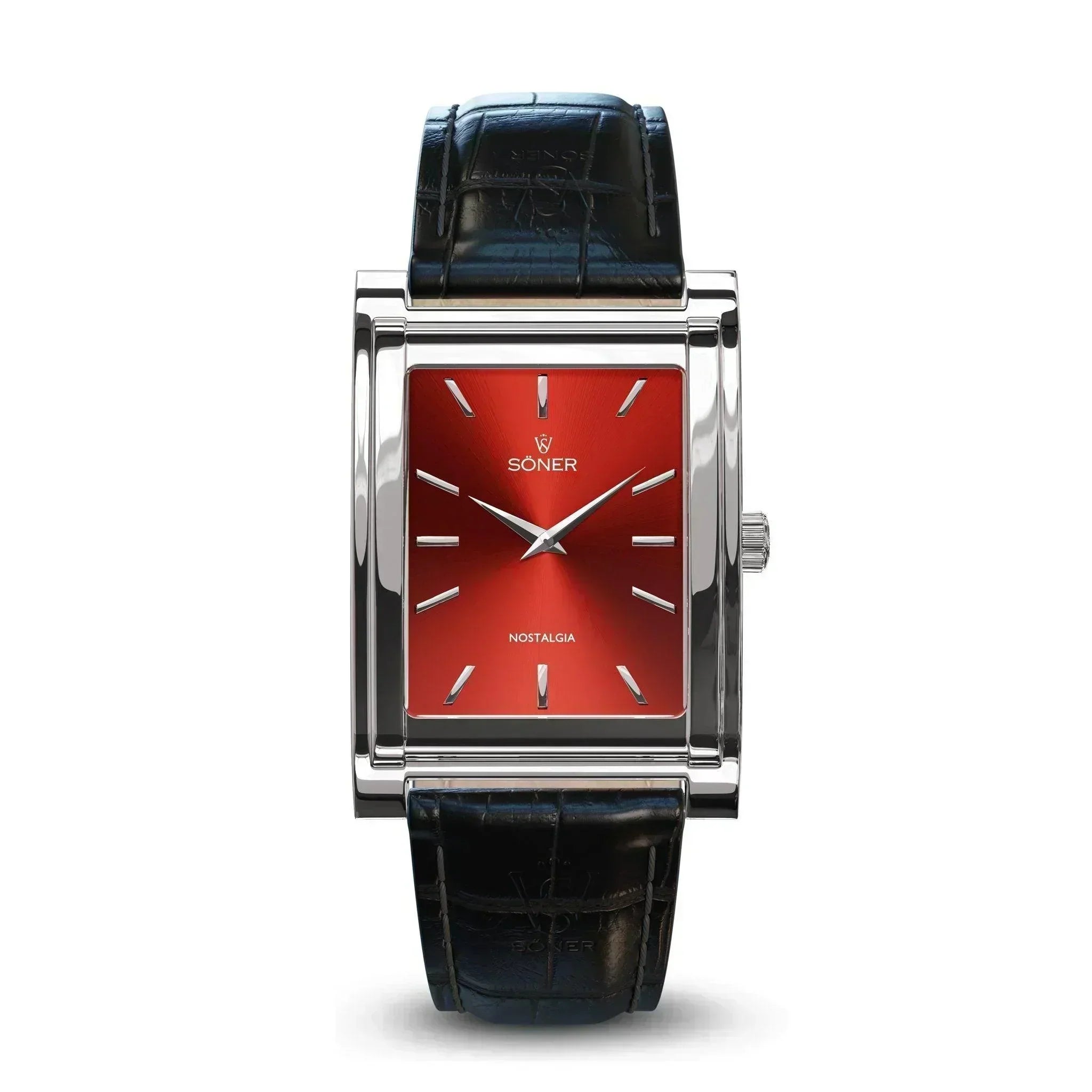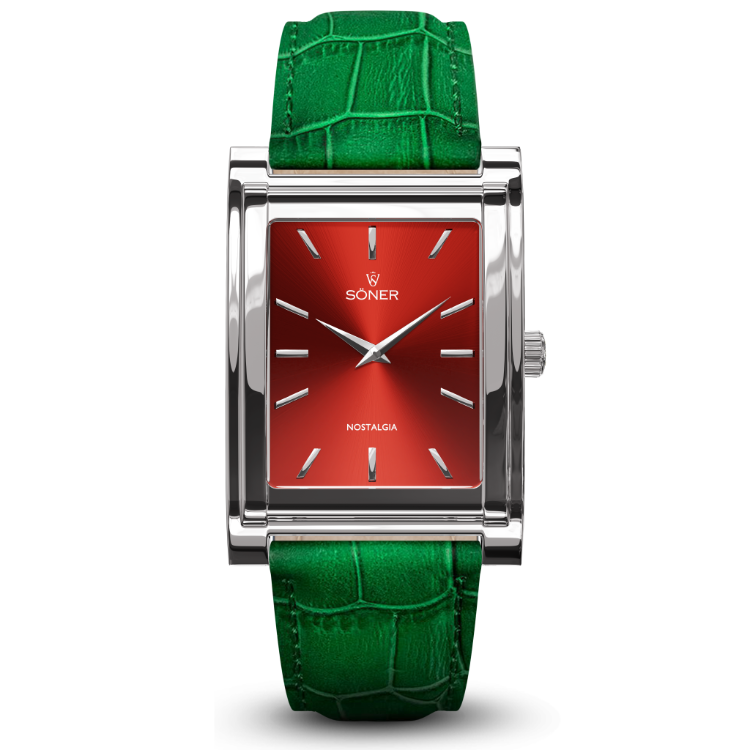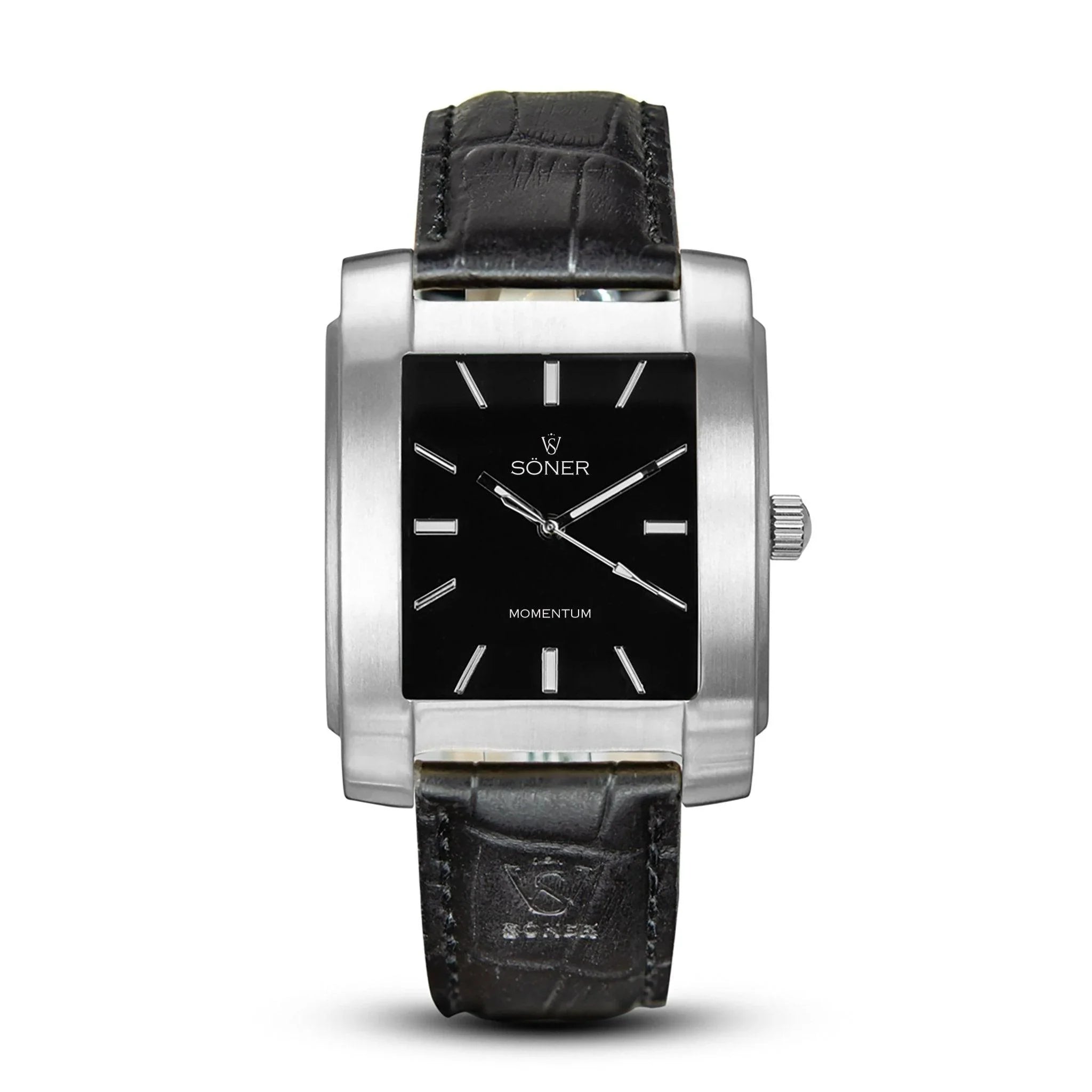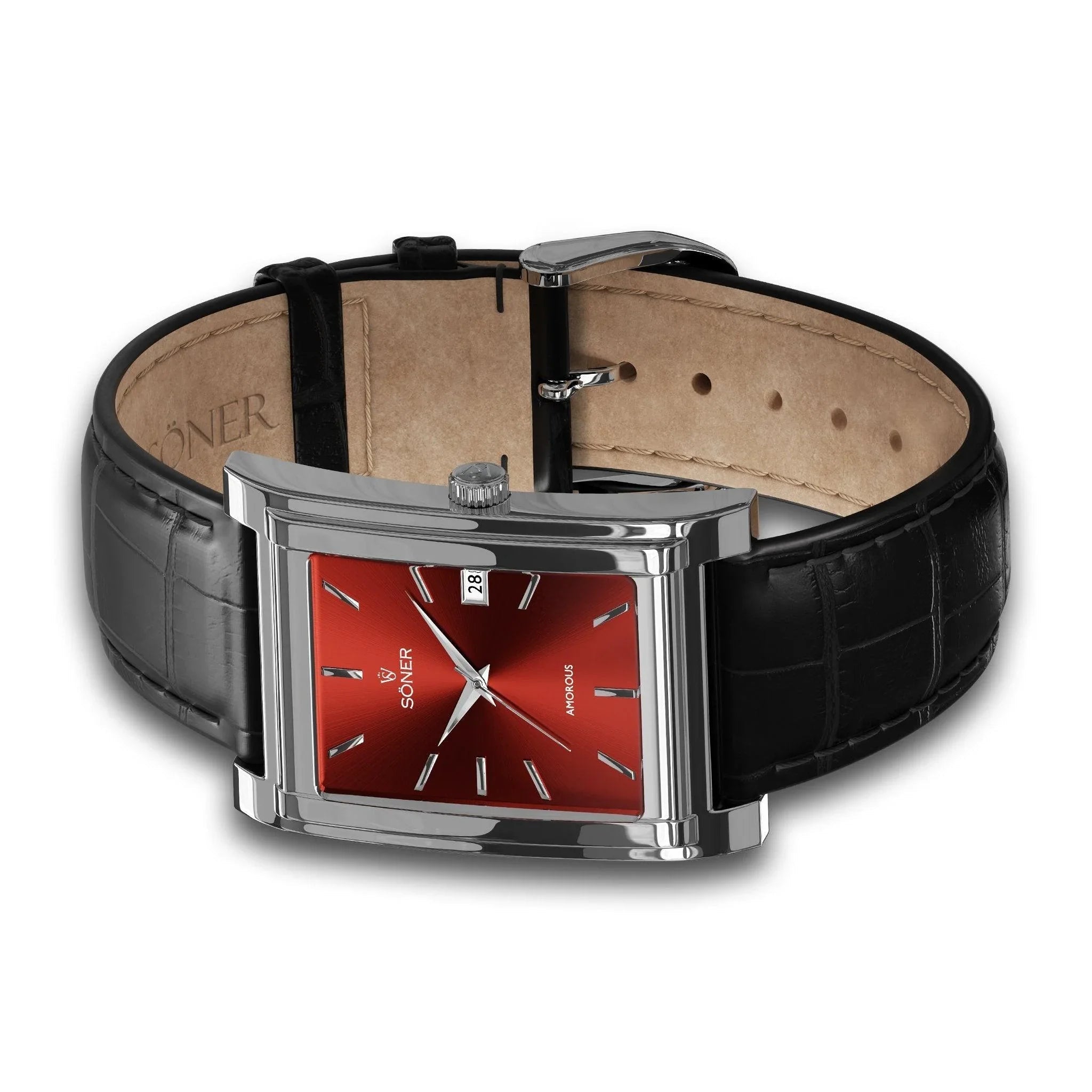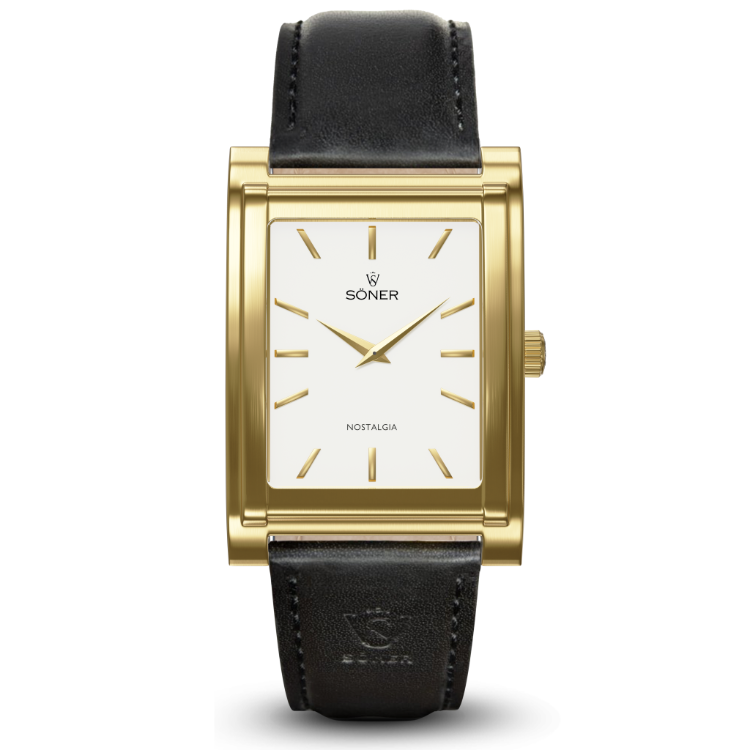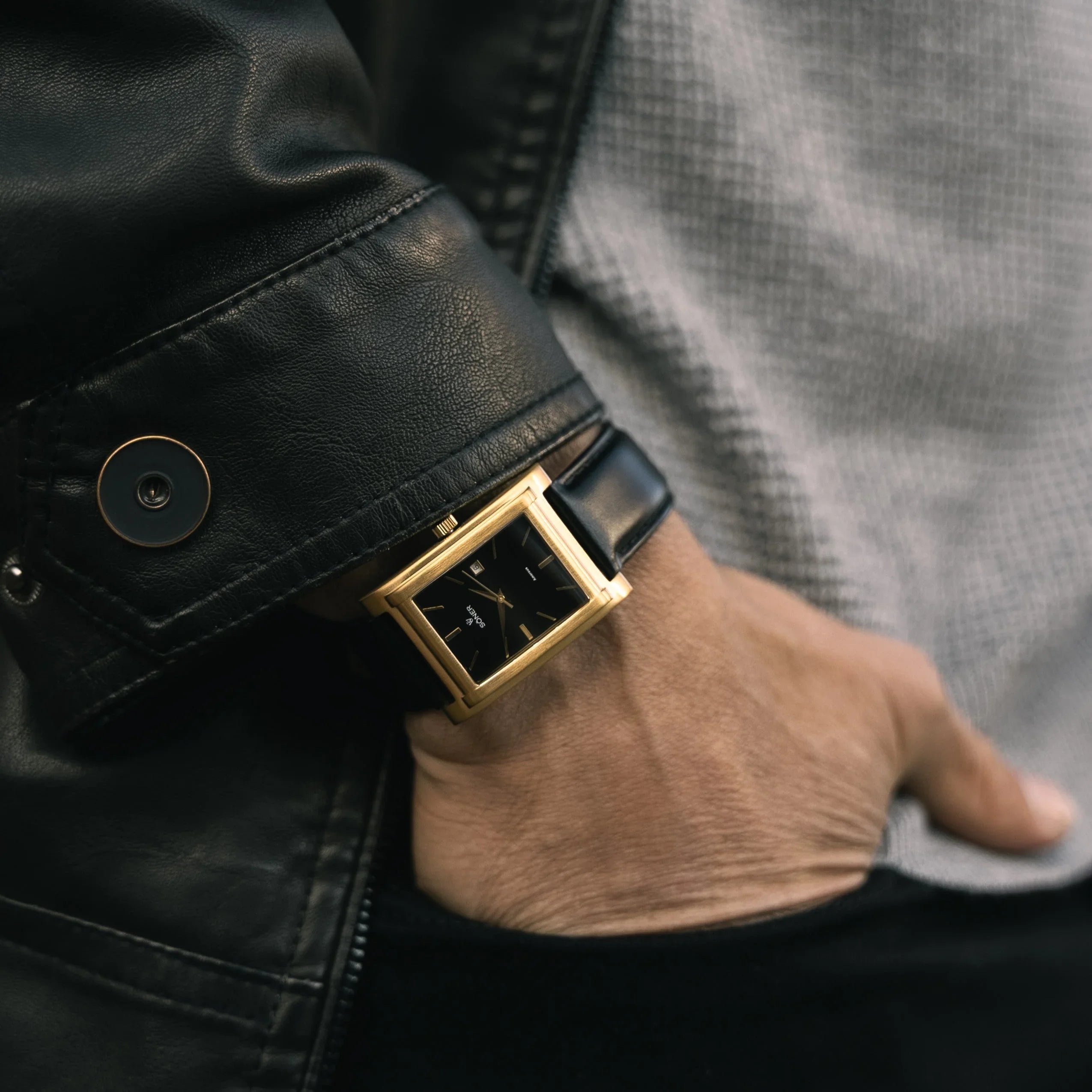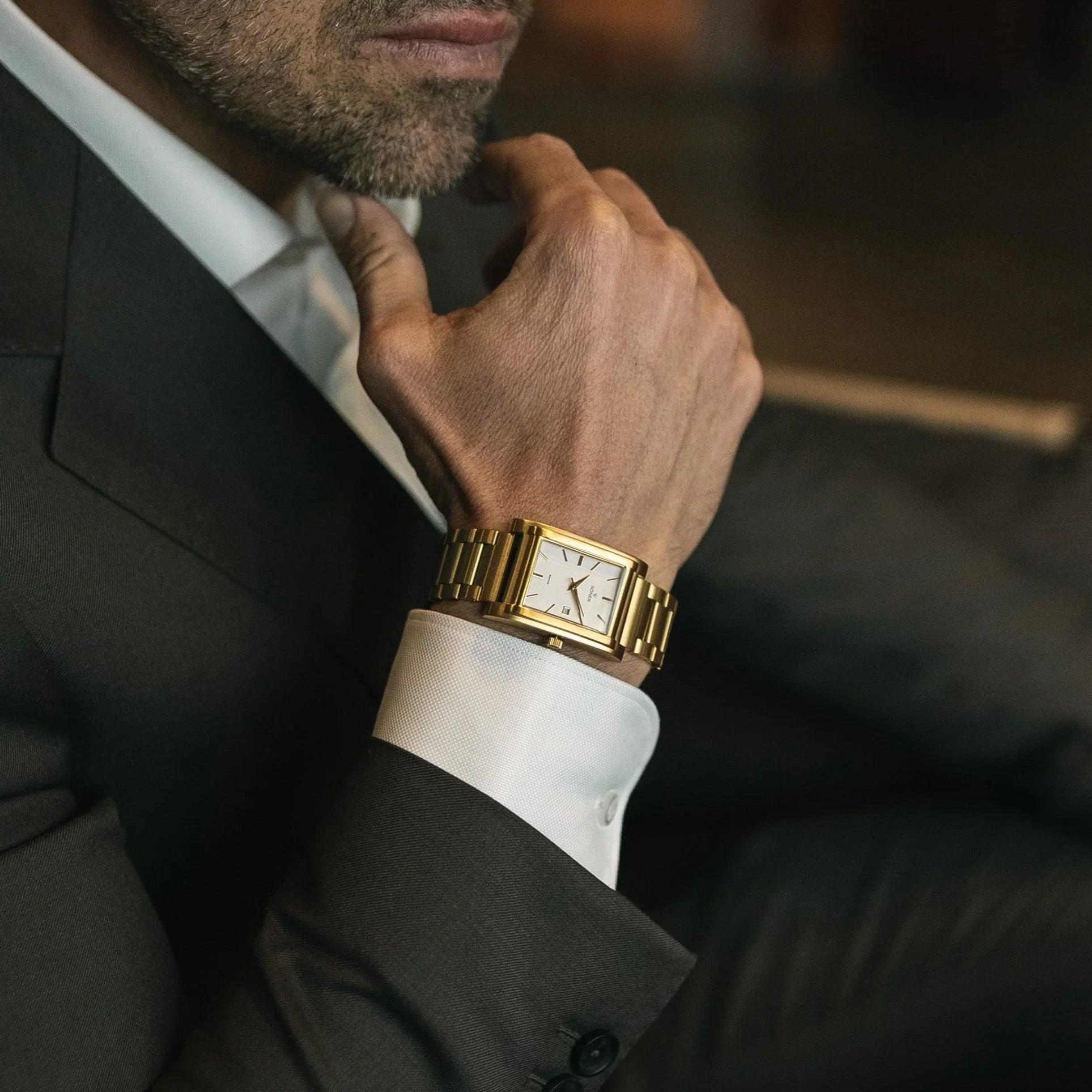Key Takeaways
Table of Contents
Su quale polso indossare un orologio per le donne?
Per molto tempo, alle persone è stato chiesto di indossare gli orologi al polso sinistro. Questo principalmente perché la maggior parte delle persone era destrimane e le corone erano posizionate a destra. Indossare un orologio a sinistra rendeva più facile caricare e regolare con la mano dominante, proteggendo al contempo la cassa da urti. Per le donne, la scelta è diventata rapidamente tanto una questione di armonia stilistica quanto di meccanica. Gli orologi condividono uno spazio visivo con anelli, braccialetti, polsini, maniche e borse. Pertanto, il polso che scegli dovrebbe bilanciare tutto ciò che indossi e tutto ciò che fai.
Per capire le preferenze del polso tra le donne e perché la scelta è importante, devi prima di tutto comprendere sia lo stile che la comodità. Ad esempio, pensa a come leggi l'ora. Se controlli discretamente durante le riunioni, sollevi borse della spesa o sistemi gli zaini dei bambini, indossare l'orologio sul polso non dominante spesso riduce urti e angoli scomodi. Se hai una giornata impegnativa con presentazioni o foto, indossare l'orologio sulla mano dominante può essere più intelligente. Entrambe le scelte possono essere “giuste” se supportano il movimento naturale e appaiono composte.
Ecco alcune domande utili per testare le tue impostazioni predefinite:
- Quando scrivi, l’orologio tocca il bordo del quaderno o scivola sopra?
- I polsini stretti della giacca afferrano la lunetta o scivolano sopra senza problemi?
- Durante il tragitto o in palestra, l’orologio ruota o resta fermo?
- I tuoi anelli e bracciali preferiti sembrano affollati accanto all’orologio?
Su quale mano dovrebbe una donna indossare l’orologio per il massimo comfort?
Gli orologi non si indossano solo per leggere l’ora. Molte donne li portano per estetica e a volte l’estetica non coincide con il comfort. Il comfort è la somma di piccoli dettagli come lo spessore della cassa, la curvatura delle anse, la morbidezza del cinturino, le micro regolazioni, persino il modo in cui il polso si flette quando digiti o allunghi la mano. Anche se la mano non dominante sembra un punto di partenza affidabile, la messa a punto trasforma orologi “ok” in orologi comodi per tutto il giorno.
Ecco una lista di controllo per il comfort:
- Postura durante la digitazione: appoggia gli avambracci sulla scrivania, digita normalmente e senti i punti di contatto. Se gli angoli della cassa toccano la scrivania o il bracciale pizzica, prova l’altro polso o stringi il bracciale di mezzo anello.
- Angolo di scrittura: Tieni la penna per 5 minuti. Se la corona tocca la mano o la cassa urta la pagina, ruota l’orologio di qualche grado verso l’interno o cambia polso.
- Vestibilità con abbigliamento esterno: Indossa la manica più aderente. Una cassa più sottile con anse curve verso il basso e un cinturino in pelle o tessuto morbido di solito si adattano perfettamente. Se si impiglia, scegli cinturini più morbidi o modifica la tecnica della manica (orologio sotto la manica invece che sopra).
- Grip e trasporto: Tieni il volante, il passeggino, la maniglia della valigia o le borse della spesa. Se la cassa preme un tendine o il bracciale scivola e fa rumore, regola la tensione o sposta l’orologio al polso opposto per quell’attività.
- Comfort della pelle: Se il calore o l’umidità causano gonfiore, usa bracciali con micro regolazioni per cambiare rapidamente il cinturino e trovare il comfort a metà giornata.
Scelte di cinturini e custodie che massimizzano il comfort:
- Pelle/Tessuto/Gomma: sono delicati sulla pelle, si adattano comodamente alle curve del polso e si infilano sotto i polsini senza attrito.
- Bracciali (Acciaio, Titanio) sono eleganti e resistenti, e richiedono una misurazione precisa per evitare rotazioni e punti caldi. I modelli con micro regolazioni rapide funzionano bene nell’uso quotidiano.
- Custodie sottili (e anse corte) si appoggiano più vicino alle ossa del polso e riducono i colpi contro il bordo della scrivania.
- Protezioni della corona e dimensione della corona: se una corona standard punge durante l’estensione del polso, ruota leggermente l’orologio verso l’interno, scegli una corona a profilo basso o prova l’altro polso.
Come consiglio finale, posiziona l’orologio a una larghezza di dito sopra l’osso del polso. Questo leggero spostamento spesso elimina la pressione mantenendo il quadrante leggibile a colpo d’occhio.
Vuoi dati di monitoraggio della salute più puliti?
Posiziona l’orologio dove i sensori mantengono un contatto stabile durante il movimento e impara a regolare i cinturini per stabilizzare le letture.
Ottimizza il posizionamento dei sensoriQual è la scelta ideale per le donne tra polso destro o sinistro?
A seconda dei tuoi obiettivi, entrambi i polsi possono essere ideali. Il polso sinistro appare classico e discreto mentre il destro comunica intenzionalità e uno stile all’avanguardia. La vera decisione dipende dalla tua routine e dall’estetica. Di seguito un rapido confronto tra chi indossa l’orologio al polso sinistro e chi al destro.
| Polso | Vantaggi | Possibili svantaggi |
|---|---|---|
| Polso sinistro | È naturale per chi è destrorso e le corone sono solitamente orientate per una facile regolazione. | Può risultare prevedibile e potrebbe sfiorare i bordi della scrivania se il bracciale è allentato. |
| Polso destro | Ha uno stile distintivo. Potrebbe essere meglio bilanciato se gli accumuli di gioielli sono sulla mano sinistra. | Le corone standard possono toccare la pelle e gli utenti destrimani potrebbero danneggiare maggiormente la cassa. |
Ci sono aspetti culturali, di moda e tradizionali che influenzano la scelta dell’orologio da indossare.
- Suddividi la tua giornata in blocchi di attività (lavoro profondo, riunioni, spostamenti, commissioni, palestra, serate). Scegli il polso che riduce al minimo l’attrito nel blocco più lungo.
- Considera l’equilibrio visivo: gli anelli si indossano sulla mano sinistra, un orologio al polso destro può ripristinare la simmetria. Se digiti tutto il giorno, il polso sinistro potrebbe essere più tranquillo sotto i polsini.

Da SÖNER Watches, abbiamo orologi rettangolari specificamente progettati per donne. Se sei indecisa, lascia che il nostro design impeccabile sciolga il dubbio. I nostri orologi da donna sono progettati con profili aderenti al polso, corone sagomate con cura e opzioni di cinturini che vanno dalla pelle ai bracciali per rimanere comodamente su entrambi i polsi mantenendo un aspetto raffinato.
Indossare un orologio al polso destro appare più femminile?
“Femminile” è un linguaggio di stile, non una regola unica, ma il polso destro può trasmettere uno styling intenzionale perché rompe con il default. Quando alzi un bicchiere, tieni una pochette o saluti qualcuno, un orologio al polso destro spesso incornicia il movimento soprattutto se la mano dominante compie il gesto e appare composta, non casuale.
Ti sei mai chiesto perché molte donne preferiscono il polso destro? Perché crea un equilibrio asimmetrico quando l'altra mano porta anelli o un polsino. Mette in risalto casse e bracciali lucidi in foto e video, e suggerisce scelta, non abitudine, che il pubblico interpreta come sicurezza.
Per mantenere un aspetto elegante, fai attenzione alle proporzioni. Su polsi piccoli, una cassa sottile di media dimensione con bracciale rastremato dà una sensazione di leggerezza. Su polsi più grandi o con abbigliamento strutturato, una cassa leggermente più grande e piatta può aggiungere presenza moderna senza sovrastare la silhouette.
Le donne mancini dovrebbero indossare gli orologi in modo diverso?
Le donne mancini spesso scelgono il polso destro per libertà durante la scrittura, il disegno, l'acconciatura o l'uso del telefono. La variabile principale è la posizione della corona e dei pulsanti. Le corone standard alle 3 sono ottimizzate per il polso sinistro, il che può rendere meno confortevole il polso destro a meno che non si regoli la vestibilità o il modello.
Su quale polso la maggior parte delle donne mancini sceglie? La maggior parte opta per il polso destro perché minimizza gli scontri con penne, trackpad e strumenti quotidiani nella mano dominante. Mantiene inoltre visibili notifiche e controlli dell'ora mentre la mano sinistra lavora.
Le donne mancini affrontano ancora sfide:
- Contatto con la corona: una corona tradizionale può premere il dorso della mano durante l'estensione del polso.
- Accesso ai pulsanti (Smartwatch): Le corone digitali/pulsanti laterali possono sembrare invertiti finché non cambi l'orientamento nelle impostazioni.
- Rotazione sotto le maniche: Bracciali leggermente larghi possono spostarsi, disallineando il quadrante, specialmente con blazer sagomati.
- Opzioni limitate per corone a sinistra: Pochi modelli posizionano la corona alle 9, anche se le scelte ambidestre stanno aumentando.
Ecco un paio di consigli per i mancini:
- Cerca corone a sinistra o design ambidestri per mantenere gli aggiustamenti comodi sul polso destro.
- Ruota verso l'interno di qualche grado per eliminare la pressione sulla corona senza compromettere la leggibilità.
- Usa cinturini aderenti sicuri (pelle, gomma, end-link sagomati) per prevenire la rotazione, micro-regola quando il calore causa gonfiore.
Anelli e bracciali impilati?
Bilancia il tuo look con consigli rapidi su simmetria, vestibilità delle maniche e dimensione del quadrante per outfit curati.
Vedi consigli per l'equilibrio nello stylingIndossare un orologio su un certo polso può influire sull'efficienza quotidiana?
Un polso scelto con cura può infatti velocizzare o rallentare dozzine di piccoli gesti che si sommano in un'efficienza percepita durante tutta la giornata. Ecco alcuni modi in cui la posizione dell'orologio può interferire con le attività quotidiane:
- Scrittura e schizzi: Sul polso dominante, la cassa può urtare il bordo della pagina o alterare l'angolo della penna. L'uso sul polso non dominante di solito è più fluido.
- Digitazione e trackpad: Casse alte possono urtare i bordi della scrivania causando tensioni alle spalle mentre si evita il contatto. Una cassa più sottile o il polso opposto risolvono il problema.
- Lavori domestici: Cucina, lavanderia e cura dei bambini comportano movimenti ripetitivi. Il polso non dominante riduce urti e schizzi.
- Trasporti e viaggi: Maniglie delle valigie, pali del treno e braccioli dei sedili possono causare sfregamenti. Il polso con meno punti di contatto durante il viaggio è la scelta migliore.
A seconda del contesto, la posizione dell'orologio sul polso è importante. Ecco alcune posizioni per ambienti professionali:
- Riunioni e presentazioni: Il polso non dominante consente controlli del tempo discreti mentre la mano dominante gesticola liberamente.
- Ruoli a contatto con i clienti: Settori conservatori interpretano orologi ordinati e discreti sul polso non dominante come segno di compostezza e discrezione.
- Ambientazioni creative: È ben accetta una scelta espressiva del polso. Assicurati solo che l'orologio non impigli tessuti, oggetti di scena o attrezzature fotografiche.
- Lavoro in uniforme: Se la politica limita i gioielli, privilegia vestibilità aderenti e superfici facili da pulire. Vince il polso con meno ostacoli durante il turno.
Stile generale e pratiche di utilizzo dell'orologio da polso per donne
Un orologio diventa un punto fermo di stile quando proporzioni, materiali e contesto sono in armonia. Concentrarsi su questi elementi permette di costruire outfit attorno all'orologio o di farlo completare discretamente il look.
- Proporzione: Abbina diametro e spessore della cassa alla larghezza del polso e alla struttura della manica. Le anse curve verso il basso creano una silhouette su misura che avvolge il polso.
- Armonia dei materiali: Abbina metalli simili (oro con oro, acciaio con acciaio) o crea contrasto intenzionale (pelle calda con acciaio freddo) per evitare dissonanze.
- Strategia di colore: Quadranti neutri (bianco, argento, nero) si adattano a vari outfit. Verde scuro, blu o champagne aggiungono personalità mantenendo la versatilità.
- Regole per l'accostamento: Se una mano indossa anelli vistosi, considera di mettere l'orologio al polso opposto per preservare uno spazio visivo.
- Cambi stagionali: pelle per i mesi freddi, bracciali per le serate primaverili, gomma o tessuto per i giorni umidi e i weekend attivi.
Come dovrebbero indossare gli orologi le donne per completare il loro outfit?
Alla fine della giornata, il modo in cui indossi il tuo orologio dipende solo dalla tua estetica personale e dal comfort. Ecco una lista di modi per indossare il tuo orologio per completare il tuo outfit:
- Per abbigliamento formale, scegli casse sottili che scivolano sotto le maniche, bracciali lucidi o pelle raffinata. Abbina con braccialetti delicati senza oscurare il quadrante.
- Per abbigliamento da lavoro, casse medie con indici puliti appaiono professionali. Attieniti a metalli classici o cinturini smorzati che richiamano i toni di scarpe o cintura.
- Per abbigliamento casual, usa quadranti minimalisti, cinturini colorati o tessuti con texture
Piccole rifiniture come abbinare le corone e le finiture della fibbia elevano l'intero outfit.
Sei mancino e la corona ti pizzica?
Scopri l'orientamento della corona e i trucchi di micro-regolazione che rendono facile indossare l'orologio al polso destro.
Vedi consigli per chi è mancinoEsiste un significato psicologico dietro la scelta del polso per indossare l'orologio?
Non esiste una regola da laboratorio, ma la scelta del polso può segnalare tendenze che il pubblico intuisce. Influisce anche su come ti senti mentre indossi l'orologio. Il polso sinistro viene percepito come pratico, organizzato, allineato alla tradizione e utile in ambienti conservatori dove la discrezione conta. Il polso destro dimostra un'espressione curata, creativamente indipendente, comune nelle cerchie alla moda e all'avanguardia.
Ci sono alcuni segnali subconscio nel posizionamento dell'orologio. Poiché la maggior parte delle persone tende a indossarlo a sinistra, un orologio al polso destro appare scelto. Questa sottile differenza spesso trasmette sicurezza. Al contrario, un orologio al polso sinistro può comunicare affidabilità. L'impressione che si dia priorità alla funzione.

Qual è il polso migliore per le funzioni di monitoraggio della salute negli orologi?
Con l'avvento degli smartwatch e degli ibridi, la vestibilità e la stabilità contano più del vecchio dibattito sinistra vs destra. Anche così, il polso non dominante si muove spesso meno e può fornire dati più puliti durante movimenti vigorosi.
Poiché i problemi moderni richiedono soluzioni moderne, dobbiamo chiederci se i sensori funzionano meglio su un polso piuttosto che sull'altro. I sensori ottici per la frequenza cardiaca o SPO2 richiedono un contatto costante con la pelle. Entrambi i polsi possono garantire questo se il cinturino è aderente senza stringere. Il polso non dominante può produrre curve della frequenza cardiaca leggermente più stabili durante attività ad alto movimento perché oscilla un po' meno.






















